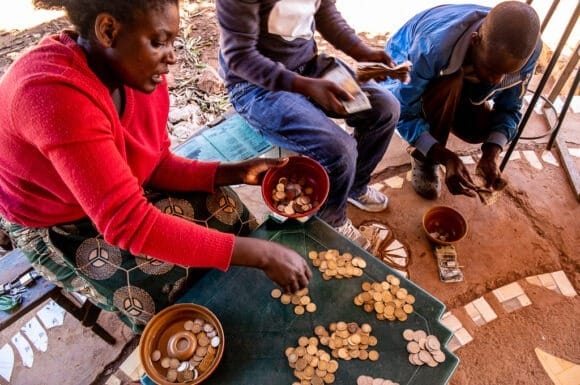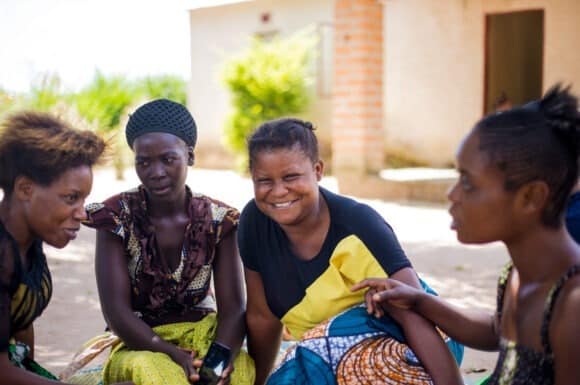Young Women’s Financial Inclusion & Empowerment
In collaboration with financial service providers, we are delivering the Ulemelero ”Live Well” project which aims to increase access to inclusive financial services and products in rural and hard-to-reach rural areas, with a target of 12,500 young women and 2,500 men living in 45 rural communities.
The Ulemelero is a a four-year women’s financial Inclusion project funded by the Jersey Overseas Agency (JOA) and is being implemented in Eastern, Western and Luapula Provinces in collaboration with several partners in the financial inclusion ecosystem.

Project Rationale
a. According to the Finscope 2020;
- 30.9% of Zambians do not have a formal account with a financial institution. There is a 26.9% disparity between adults in urban versus rural areas who are financially included. 60% of adult Zambians don’t have a bank.
- Young rural women, aged 16 to 24 are the most financially excluded as they are often dependent individuals sitting at the intersection of the three most significant reasons for financial exclusion; income level, location, and gender.
- Mobile money has emerged as a major driver of financial inclusion, particularly amongst young people and those in rural areas where access to bank physical infrastructure remains limited
- Financial inclusion largely remains bank centric with very low Uptake of Pension (8.2%) and insurance (6.3%) which are skewed towards urban areas.
- Inadequate digital and financial literacy, as only 5% of the 63% of adults who own a mobile phone use it to pay bills or receive money in Zambia compared to an average of 16% Sub-Saharan Africa – Thus need Interventions that tackle knowledge as well as accessibility issues.
Our Intervention
On this project we are responding with a two pronged approaches; Community change and Financial Sector systemic Change.
a. Community Change.
Community Change focused on building demand for financial Services among young women in rural areas through;
- Training in basic, digital and financial literacy.
- Formation and strengthening of new and existing saving groups respectively coupled with digitalizing all their processes.
- Integration of gender transformative approaches, to address harmful gender norms which pose as barriers to rural young women’s financial inclusion.
b. Financial Sector Systemic Change.
Focused on Stimulating Supply of tailored financial services and products for improved access and usage of digital financial Services (DFS). Underpinned by youth led research and market system development, we will invest in;
- Credit Guarantee Scheme for improved access to tailored credit (ZCGS and NATSAVE)
- Digital platform generating credit scores for digital customer credit worthiness profiling (Pearl Systems platform customization)
- Improved access to Pensions products through integration with customized digital platform (Mukuba Pension Trust)
- Transformation of Young Women’s Saving groups into Commodity Producer Groups (CPGs) through improved access to markets, including digital commodity markets (Signified Group)
- Expansion of Agency networks in target areas through providing start-up capital

Why we think rural young women are bankable.
- Women are better borrowers than men (non-performing loans was 4.3% for women and 4.9% for men, and women-owned small businesses had the lowest rate of non-performing loans, which was 1% to 3%) (BOZ,2018).
- Women are better savers than men- women’s savings accounts made up only 29% of all deposit accounts in 2014, with only a slight increase to 31% in 2018. However, average savings balances for women were higher than the balances for men in 2018 despite men earning more than women on average. This reveals an opportunity for the creation of savings solutions that address women’s unique needs (BOZ, 2018).
- Veiled Potentialities – Most financial solutions are not tailored to women’s unique financial needs—and there is limited sex-disaggregated data across most digital financial products and services (BOZ, 2018). E.g. loans are either payslip or collateral based favoring men who are the majority in employment and also have better access and control to assets.
- Usage of DFS is growing significantly and is an opportunity to close the gender gap.
